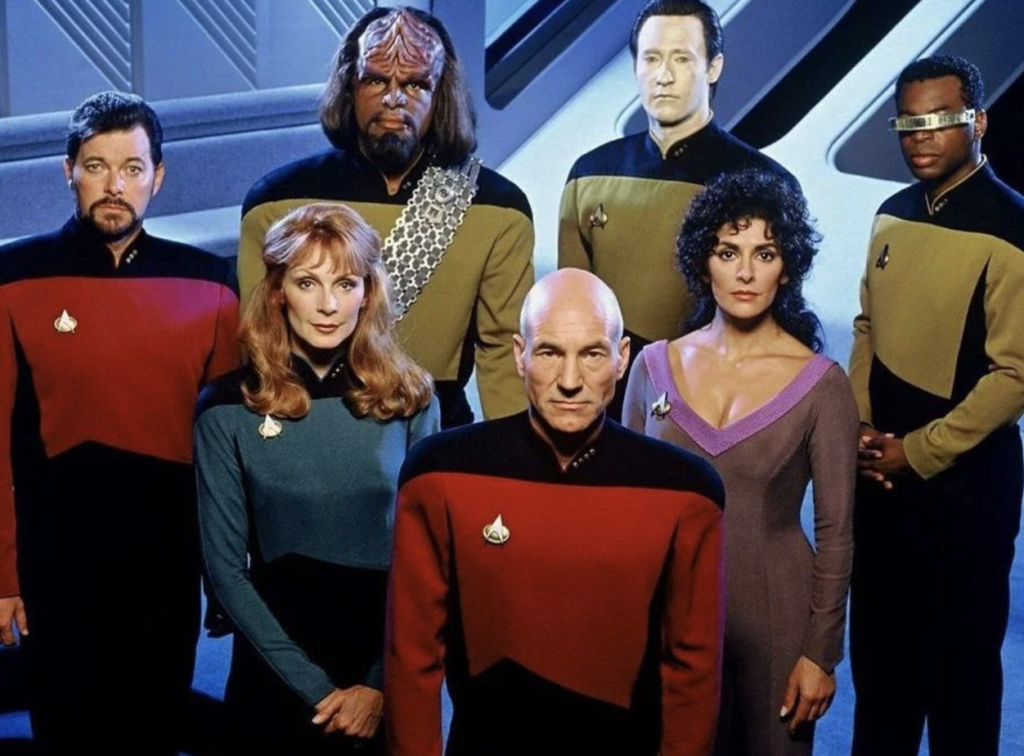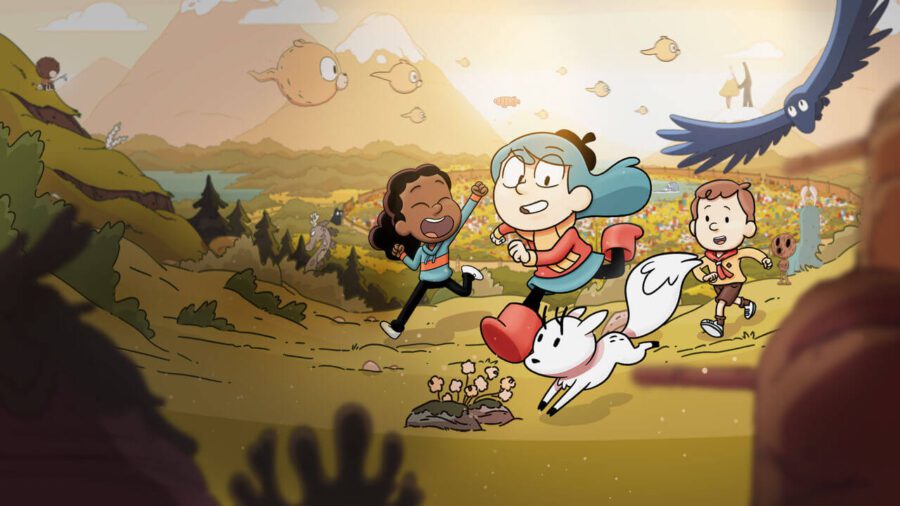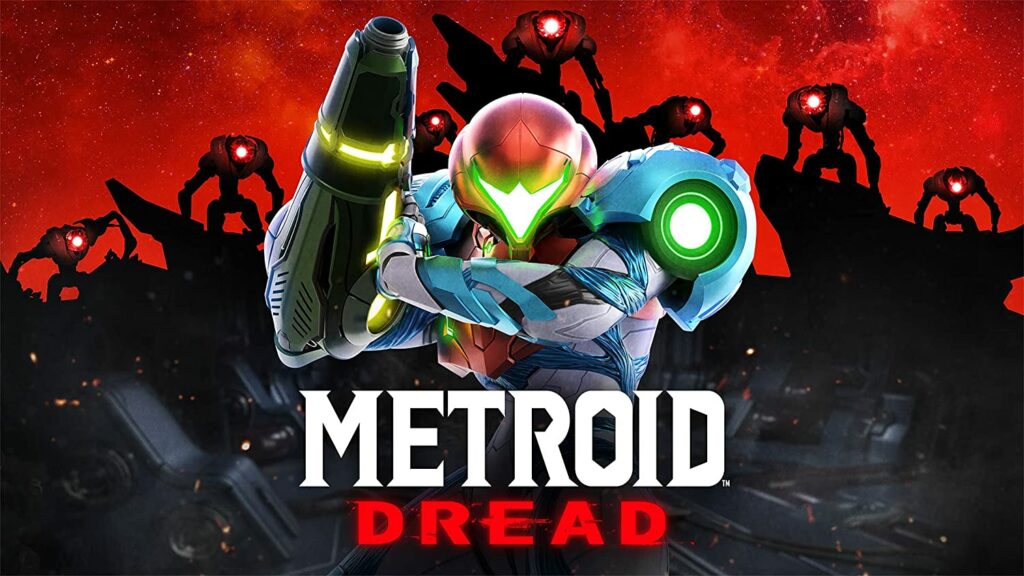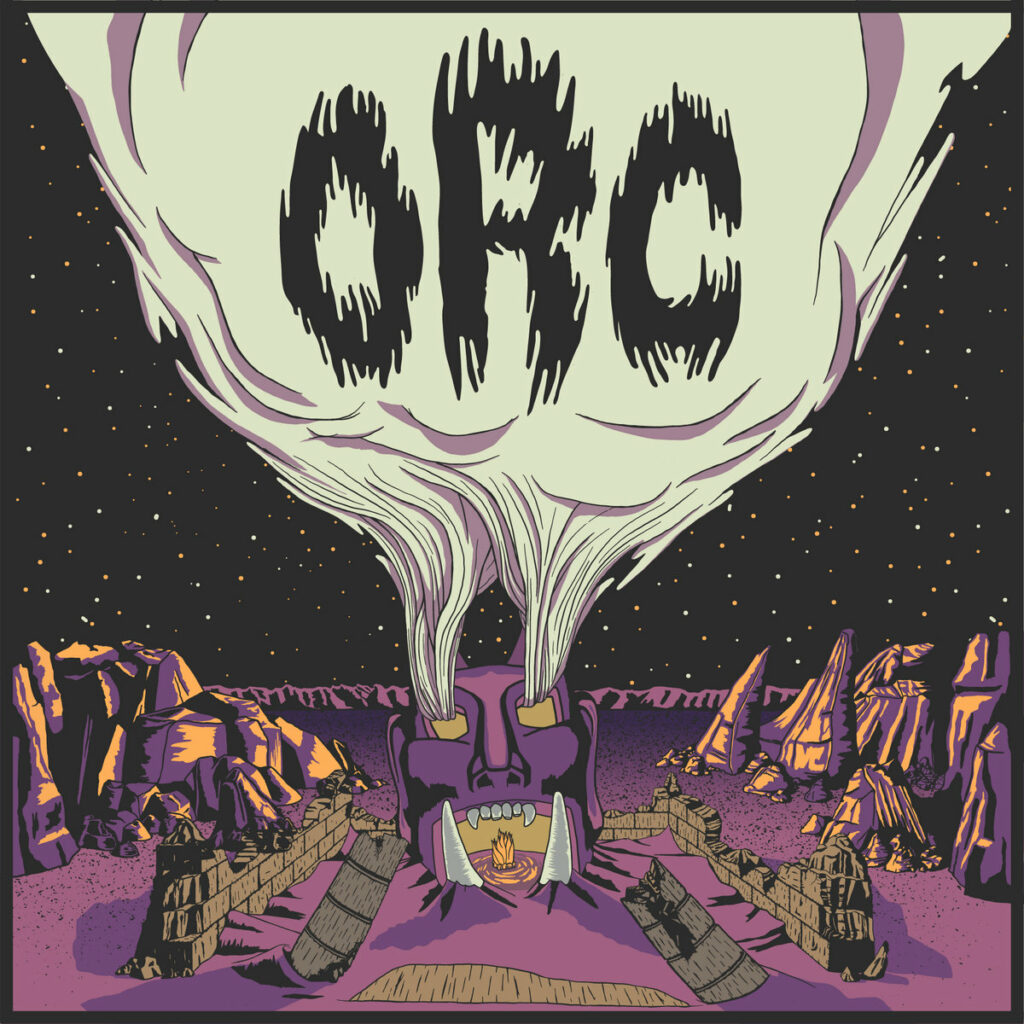The Year –– 2021: Inspiration
Even though 2021 ended up being another year of survival, it was an inspired year since I was able to finish drawing Chapter 5. Below are the things that, though they may not have been direct inspirations on the comic, inspired me to keep pushing forward and brought some joy to a very tumultuous year.
WATCHED:

- Star Trek: The Next Generation
Science-fiction has never been a huge part of my cultural rolodex. I like the genre well enough, but it’s not slotted into a list that defines my tastes, aside from, perhaps, post-apocalyptic works. I have always thought fondly of Star Trek: The Next Generation, however.
I think that’s mostly due to the fact that it was always on during its seven-year run. Being a popular show, that is unsurprising, but only recently did I discover that it was also pervasive because it was made for syndication, meaning that it wasn’t tied to any single network. Any channel could pay for episodes and air them on their station. So, yeah, it was everywhere.
After years of talking about it, my wife and I finally sat down and started watching this show from the beginning. I must admit that I was hesitant because the popular discourse is that the first two seasons are terrible and should be avoided at all costs. I took that to heart because 1. I didn’t want to waste my time, and 2. what if it didn’t hold up to my memory of the show being accessible, thoughtful, and fun?
As we watched each episode of the first season, my wife and I were stunned––they were good. The entire season was good (minus a few episodes marred by a show finding its legs and also from hindsight), and so was season 2. Bolstered by this revelation, The Next Generation, has been my “surviving 2021” show, which works because it stands in complete opposition to most hour-long dramas developed today: it’s episodic (meaning each episode is its own story instead of an installment in an ongoing story), it’s optimistic and humanistic, and it relies on dialogue over action to resolve its crises. In light of the ongoing pandemic, the cynicism of politics and the news, and generally low optimism, this show became (and continues to be) an incredible breath of fresh air at the end of (nearly) every day.

- Hilda from Netflix
Hilda is perfect.
Based on a series of comics by British cartoonist, Luke Pearson, Netflix’s animated adaptation is as much an episodic art lesson as it is a fun story. Even though the art style (to be honest, Pearson’s style) is very different from my own, both Pearson and I are very cartoony and work in a reductionist way (which is vapid––all cartooning is reductionist in some way or form). However, there are moments when I stop and admire how the style reduces certain elements, especially backgrounds in the form of architecture and natural landscapes, and think about how I could incorporate those choices into my work. And then I get frustrated because to insert it into Long John at this point would be such a shift that it could be jarring or distracting for the reader. It is also a startling argument for a limited color palette. While not as limited as what I use in Long John, it’s not too far off, and actually works to create a uniformity throughout the show without becoming stale or repetitive.
All of that aside, the show is so well-written and acted, that there is no word I can think to better describe it than “joyful.” It hits nostalgia (despite being new and an original work), playful fantasy, originality, and fully-developed characters so soundly that I can’t believe this hasn’t already existed for fifty years. It feels like something so pure that it couldn’t possibly exist. In other words, Hilda is perfect.
PLAYED:

- Metroid Dread by Nintendo (on Nintendo Switch)
It was a busy year of drawing for me, so I didn’t get to play as many video games as, perhaps, I wanted to. I did make one exception for Metroid Dread. Heck, I even bought a Nintendo Switch just to play it.
Having already written about the franchise and my time with the game, the one thing that has become more clear since then has been the influence these games have had on me since diving deep into as many as I could get my hands on. As a narrative, it’s best when austere and simple––Metroid is not about a deep lore or complex plots; it’s about a single person surviving against overwhelming hostility in its many forms. As a game, it is at its best when it conveys a sense of tactile competency––you play as a hero with a specific and limited set of skills and doing your job (and doing it well) is what allows you to progress through the game.
I’m big into that kind of competence power fantasy, to the point where I’ve played through the entire game four times already. More importantly, it is a style that really captured my imagination and a lot of the short stories I’ve been developing have been influenced by the spartan approach to story and character that Metroid has done through all of its numbered installments.
HEARD:

- Orc by Orc
I don’t remember how I found the band Orc and their debut EP, Orc. I think it was actually a promoted Facebook ad that took me to their Bandcamp page. An indie group out of Michigan, they are a two-piece metal band with no guitars. With one man on an extremely distorted bass guitar and vocals with the other on drums, Orc creates a sound like no other I’ve really heard. While it can be weird to listen to (especially before I realized that the only guitar I was hearing was bass), they create a unique sonic signature when all the elements combine.
It’s a stark sound the band creates, perhaps even grating if you’re not prepared for it. But if you’re able to find a seat amid the fuzz, the overall tone that’s created by the musicians, their music, the lyrics, and the vocals is one that connected with me on a fundamental level. The lyrics are introspective (and interesting character studies) and the singing is melodic, which stand out against the tidal wave of distortion they float over. The chord progressions––while aggressive––are melodic as well, creating a sense of sadness and melancholy (and melodrama) that other bands try to force through lyrics alone.
While I love the music, it’s not the music itself that had any particular impact on Long John this year. Instead, it’s more of a sense memory. I picked up the EP in the beginning of March and the listened to it a lot. Now, when I listen to it, it takes me back to a specific time, place, and activity. While on spring break, this album was on loop in my headphones when I finally broke through a wall when it came to thumbnailing out Chapter 5. Whether the music created inspiration or if it simply became the soundtrack to my renewed productivity, it doesn’t matter. Either way, it was there at that moment and I’m thankful for it.

Discussion ¬